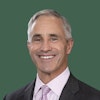Published
October 13, 2023
Later this month, the top small business leaders from around the country who make up the U.S. Chamber’s Small Business Council will travel to Capitol Hill for their annual fly-in.
Every small business may have different “asks” from Congress, ranging from tax policy to workforce challenges to the request that the federal government simply leave them alone.
This year, a common thread among the small business founders and owners visiting our nation’s capital is the need for certainty. Whether its stability in tax policy, trade policy, or a steady stream of employment-based visas they can rely on, small business owners are looking for reassurance that they can operate their businesses without having to worry about unnecessary changes from the government.
Small business needs certainty in tax policy
The Chair of our Small Business Council Natalie Kaddas echoes the frustration of thousands of small business owners who are calling for the reinstatement of the research and development (R&D) tax deduction.
For nearly 70 years, businesses have been able to immediately deduct 100% of their R&D expenses, which can include costs associated with the development, testing, and improvement of products and services. Tax reform that lowered rates for businesses and individuals six years ago changed the rule to provide that R&D costs incurred in tax years beginning after December 31, 2021 must be capitalized and amortized over several years instead of deducted in the year incurred.
So, as of January 1, 2022, businesses are no longer able to immediately write off these expenses. Instead, they are required to amortize their R&D investments, severely limiting their ability to continue investing in their business and threatening the competitiveness of the United States on a global scale.
That change equated to a 35% tax hike for Kaddas’ business, and threatens America’s competitiveness as small businesses may be less likely to invest in R&D because of the tax penalty.
Small business needs certainty in trade policy
Among our Small Business Council members who will be on Capitol Hill this month are Amy and Adam Fazackerley, Co-Founders of Lay-n-Go in Virginia, a small business that makes patented organizational bags. Several years ago, they moved manufacturing from China to Cambodia, following the direction of free trade policies that made economic sense.
When the Generalized System of Preferences (GSP) expired, the resulting tariffs forced Lay-n-Go back to China. Amy and Adam are passionate advocates for the reinstatement of GSP and the U.S. Chamber continues to push Congress and the Biden administration towards free trade agreements that will provide increased certainty for thousands of small business owners.
Small business needs certainty in immigration policy
Another Small Business Council member is Mike Zaffaroni, owner of Liberty Landscape Supply in Jacksonville. Zaffaroni continues to face worker shortages at his Florida landscaping business and is an advocate for increasing the H-2B visa cap after successfully hiring several visa holders this past year.
Zaffaroni knows that the H-2B visa cap is way too low and doesn’t allow enough workers to provide certainty for him and other small employers who are desperate for employees. The cap on workers in the H-2B program hasn’t been revised in over 30 years. Zaffaroni will be telling his story to Congress with the hope of greater workforce certainty.
Lack of certainty goes beyond anecdotes and is causing broader anxiety within America’s small business community.
That anxiety appears in the chasm in confidence between small businesses and national leadership in Washington, DC. According to the Q3 MetLife & U.S. Chamber of Commerce Small Business Index, small businesses’ confidence in their own operations, cash flow, and revenue expectations ranks at its highest since the pandemic. However, attitudes towards the national economy and policies set in Washington are generally negative with 43% of small business owners souring on the national economic outlook. Just 33% give the national economy positive marks.
One way for Congress to bend that curve upward is a better understanding of how providing certainty will help small businesses. The more often small businesses come to Washington and host elected officials back in their districts, the greater likelihood that will happen.
About the author

Thomas M. Sullivan
Thomas M. Sullivan is senior vice president of small business policy at the U.S. Chamber of Commerce. Working with chambers of commerce and the U.S. Chamber’s nationwide network, Sullivan harnesses the views of small businesses and translates that grassroots power into federal policies that bolster free enterprise and reward entrepreneurship. He runs the U.S.





